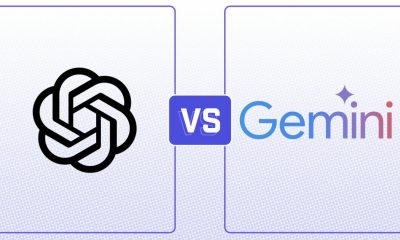Technology
Twitter CEO responds to mountains of criticism from The New York Times

/https%3A%2F%2Fblueprint-api-production.s3.amazonaws.com%2Fuploads%2Fcard%2Fimage%2F815190%2F084c708b-9ee1-419b-a2ce-cd07ab2b6d69.jpg)
Image: Michael Cohen/Getty Images for The New York Times
The New York Times is calling out Twitter and Twitter’s CEO has some thoughts.
New York Times journalist Maggie Haberman wrote about why she’s taking a break from Twitter on Friday, including a laundry list of reasonable examples explaining why the app has become an unbearable experience for her and others. Twitter CEO Jack Dorsey hit back with his own take on the situation in a multi-part thread.
In Haberman’s analysis, she describes how Twitter has gotten worse and worse in many regards over the years, developing into an unreliable source filled with toxic interactions and vitriol. Much of her overarching criticism is boiled down in these two paragraphs:
The viciousness, toxic partisan anger, intellectual dishonesty, motive-questioning and sexism are at all-time highs, with no end in sight. It is a place where people who are understandably upset about any number of things go to feed their anger, where the underbelly of free speech is at its most bilious.
Twitter is now an anger video game for many users. It is the only platform on which people feel free to say things they’d never say to someone’s face. For me, it had become an enormous and pointless drain on my time and mental energy.
She doesn’t stop there though, and Dorsey took some time on Saturday to respond to specific points that Haberman made in a thread, ignoring the chunk above and focusing on other, less-damning points.
In his first tweet, Dorsey picked out a quote where Haberman said people were tweeting more and she felt she had to check in more frequently lest she miss something.
“But the medium has changed. Everyone I follow on the site seems to be tweeting more frequently, so I had to check in more frequently.”
This is the intention behind ranking the timeline. Show you “what matters” first, everything else still accessible. Lots of work still to do.
— jack (@jack) July 21, 2018
Dorsey’s response was that this is why the “show me the best tweets first” feature exists, a feature that is hated by many users.
Dorsey then cherry-picked another part of Haberman’s piece that said Twitter is still an important source for news, which Dorsey of course agreed on, and then had a vaguely self-deprecating response to a quote in which Haberman said Twitter is not a good platform to have meaningful discussions.
Fundamentally, we need to focus more on the conversational dynamics within Twitter. We haven’t paid enough consistent attention here. Better organization, more context, helping to identify credibility, ease of use.
Challenging work and would love to hear your thoughts and ideas.
— jack (@jack) July 21, 2018
It kind of sounds like Dorsey wants to fix Twitter so people don’t have meaningful discussions on there, which honestly sounds kind of great. Imagine if Twitter was just dumb jokes and a fun, non-stressful place to hang out all the time.
Throughout his thread, Dorsey brings up “identifying credibility” a couple times, which may refer to changing how the verification system works so it’s not just for prominent names, people in media, and white supremacists, or maybe being more selective.
Of course, Twitter’s penchant for verifying white supremacists and Nazis simply because they are “public figures” has long drawn criticism from people who aren’t white supremacists and Nazis.
Ban the Nazis, it’s not hard
— Cox?Box (@Cox_Box_Tornado) July 21, 2018
Ultimately, it seems that Dorsey thinks minimizing certain voices is an important part of making Twitter better. In some cases, like with bots, racists, sexists, and homophobes, this may actually be very helpful for decent people who are getting worn out by Twitter, but Dorsey doesn’t really elaborate on who he’s referring to.
Of course that’s easier said than done, considering how many of these accounts exist on the platform, but Twitter is actively working to at least get rid of bot accounts and inactive accounts.
But Dorsey’s responses to Haberman’s article weren’t the most helpful thing in the world, and they perhaps inadvertently underline the fact that meaningful conversations really can’t work well on Twitter.

-

 Entertainment7 days ago
Entertainment7 days agoNASA discovered bacteria that wouldn’t die. Now it’s boosting sunscreen.
-

 Business6 days ago
Business6 days agoTesla drops prices, Meta confirms Llama 3 release, and Apple allows emulators in the App Store
-

 Business5 days ago
Business5 days agoTechCrunch Mobility: Cruise robotaxis return and Ford’s BlueCruise comes under scrutiny
-

 Entertainment6 days ago
Entertainment6 days ago‘The Sympathizer’ review: Park Chan-wook’s Vietnam War spy thriller is TV magic
-

 Business4 days ago
Business4 days agoTesla layoffs hit high performers, some departments slashed, sources say
-

 Business5 days ago
Business5 days agoMeta to close Threads in Turkey to comply with injunction prohibiting data-sharing with Instagram
-

 Entertainment4 days ago
Entertainment4 days agoChatGPT vs. Gemini: Which AI chatbot won our 5-round match?
-

 Business3 days ago
Business3 days agoFormer top SpaceX exec Tom Ochinero sets up new VC firm, filings reveal






















